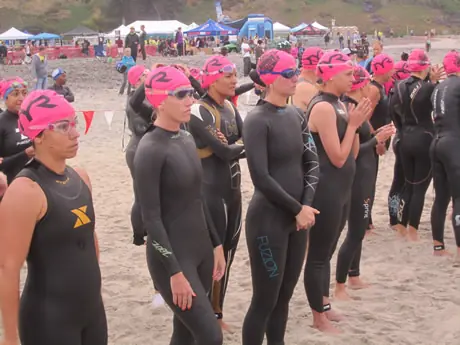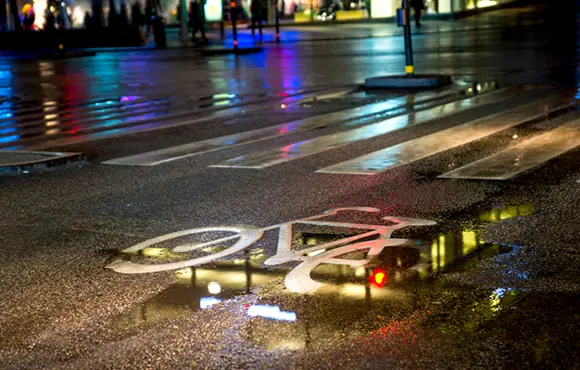
Q: Hi Gale, I'm hoping you can give me some advice. I've done several triathlons and the same thing keeps happening to me at the start of each race. On race morning, the closer I get to the start of the race, the worse I feel. By the time I'm within about 10 minutes or so of the swim start I feel anxious, my heart is racing, I feel like I can't breathe, I feel cold (even if it's hot out) and I feel like I want to vomit.
My training is rock-solid (thanks to your plans!) but when I get to race day I can never deliver my full potential due to what I think is a panic attack or race anxiety. The feelings do subside as the race goes on, but by that time I'm going slower than I did in training. It bums me out and events become punishing rather than fun. Is there something I can do, short of visiting a sports psychologist? Can you help? - F.A.
A. Hey F.A., Sorry to read you are having so much trouble at races. It sounds like no fun. I'm not certain I can help you, but let me give it a shot.
More: 9 Ways to Deal With Pre-Race Anxiety
Make a List of Scary Things
In working with athletes that get nervous or have performance anxiety, I ask them to send me a list of all the things that scare them at a race. I ask for 100-percent honesty because that's the only way we can find potential solutions to the problem. No matter how silly or unrealistic your fears seem now, just list them. No one else has to see your list.
Some typical items include:
- I might swallow water in the swim and the thought of ingesting lake water grosses me out.
- Someone might kick me in the head in the swim and knock me out.
- I'm afraid I won't be able to swim the distance.
- My goggles might get knocked off.
- I'm afraid someone will swim over the top of me and push me underwater.
- I don't want to be embarrassed about my performance.
- My co-workers are very competitive and I feel like they expect me to be on the podium.
- I don't want to disappoint my family with my finishing place.
More: 5 Secrets of the Triathlon Swim
Brainstorm Possible Solutions
Some coaches advise avoiding negative thoughts. I believe it is nearly impossible to avoid thoughts that create fear. Instead, I like to have people face fear head on. Quite frankly, there is a possibility that you will swallow water, get kicked or get your goggles knocked off.
Most of the time, these issues create a short-term need for regrouping. Actions that give you the time to regroup include treading water, floating on your back or swimming to one of the support vessels and holding on until you can get started again.
If you don't know how to tread water, learn how. There are several online videos that show treading water techniques.
To begin treading water, go to a spot in the pool where the water is just deep enough that you can't stand up. Try treading water for about 10 seconds. If you can build to 30 seconds, do it. Then go to 60 seconds. Keep bumping up the time until you can tread water for some two to five minutes. Practice treading water at each swim workout for a while. After you feel more confident you can reduce the number of workouts that include treading water.
After you have mastered treading water for a few minutes, you know that if something goes wrong during the race, you can stop and gather yourself or make adjustments before continuing the race. Skill builds confidence and reduces anxiety.
- 1
- of
- 2
About the Author









Discuss This Article